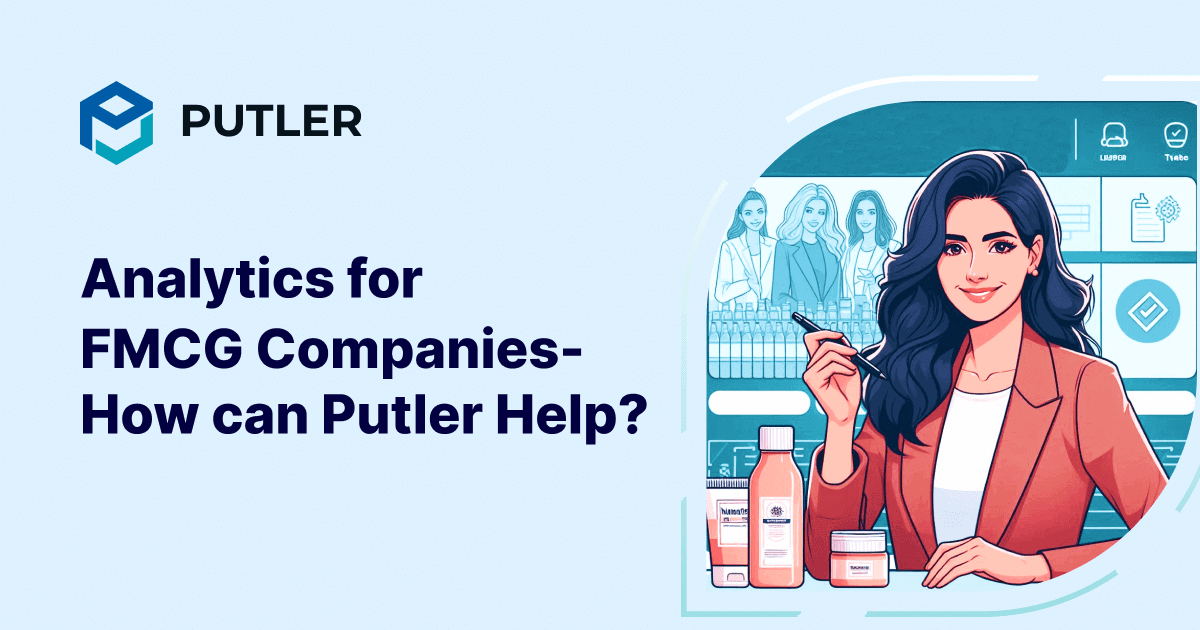In the fast-moving world of everyday consumer goods, FMCG data analytics is crucial for staying ahead. It helps them understand their data and derive valuable insights from it.
Today when almost every other business is adopting new technology to derive insights about their business, the FMCG industry should also not stay indifferent.
FMCG analytics helps businesses to use real-time data to make informed decisions. It helps to manage and streamline every aspect of business.
Additionally, it also helps in improving customer satisfaction, product management, inventory management, etc.
Using real-time data you can reduce business costs, improve efficiency, and ensure smooth business operations.
Let’s dive into details and see how data analytics in FMCG companies can be a game changer for your FMCG business with this article.
Data analytics for FMCG companies – Why is it important?
The FMCG sector has evolved rapidly in the past few years. The FMCG market is projected to reach USD 148.51 Billion by 2031.
There are several reasons for the same, including the rise of online shopping, shifting consumer trends, and increased demand for sustainable products.
But this has raised several challenges such as fluctuating demands, flexible pricing needs, fickle customer loyalty, inventory management, etc.
To beat these challenges and build on emerging opportunities in this evolving marketplace, businesses need to use technology.
This is because advanced data analytics solutions offer the ability to profile, segment, and analyze customer data and understand trends better.
By adopting such advanced analytics tools, one can reduce vulnerability to constantly changing consumer trends and always stay in business.
Still confused?
Let’s give you a clear idea about how analytics for FMCG companies can make significant changes in your FMCG business in detail:
Understand customers
One of the important benefits of data analytics for FMCG companies is understanding your customers.
Customers are the backbone of any business. So if you want to run a successful business, you need to understand them.
One way to do so is by segmenting your customers into small groups.
Customer segmentation helps you to understand them better and identify common patterns. This way, you can tailor your marketing strategy for each segment and increase conversion.
Additionally, using data, you can better understand your customers’ needs and improve their experience accordingly.
You can also use data to repurpose your marketing strategy, build better customer relations, and boost loyalty.
Forecast sales
Analytics tools can also help you forecast sales.
A sales forecasting report is an estimate of future sales. It acts as a benchmark around which the company optimizes its strategy.
Why do you need a sales forecasting report?
That’s because it helps you –
- Anticipate future demands to plan production and inventory accordingly.
- Allocate resources efficiently.
- Identify patterns and trends in consumer behavior and adjust your strategies.
- Set realistic goals and track progress.
- Assess valuable insights and make informed decisions.
- Optimize operations.
Data analytics tools can also help you to analyze your supply chain effectively.
They help you identify loopholes that are wasting your resources and energy, reduce transportation costs, and optimize inventory across the network.
Personalized marketing campaigns
Analytics for FMCG companies plays a crucial role in creating personalized marketing campaigns..
By analyzing customer data, you can gain deep insights into individual preferences, purchasing habits, and behaviors. This information allows you to tailor your marketing messages and offers to specific customer segments.
With data-driven personalization, you can:
- Create targeted email campaigns that resonate with different customer groups.
- Develop product recommendations based on past purchases and browsing history.
- Design loyalty programs that offer rewards aligned with customer preferences.
- Craft social media content that appeals to specific audience segments.
Personalized marketing campaigns not only improve customer engagement but also boost conversion rates and customer loyalty.
Competitive edge
Another advantage of business analytics in FMCG is that it helps you analyze your competitors.
You can monitor your competitor’s activities using analytical tools and observe the patterns of their endeavors. This will give you a better understanding of what makes them stand out.
In this way, you can establish yourself in the market well. You can also identify loopholes to have an edge over your competitors.
Identify new opportunities
Data analytics can also help you to increase your revenue by finding new opportunities within your business.
By analyzing your product and customer data, you can easily find the products your customers purchase together frequently.
This will help you optimize your cross-selling strategy to increase revenue.
You can also use customer data to provide personalized product recommendations and improve your sales further.
Overall, data analytics can help you improve every other aspect of your FMCG business.
So now if you are ready to invest in an analytics tool, you still have one last problem to solve. While you can find many different tools available in the market, deciding on one that suits you better can be difficult.
So let’s solve this by introducing you to Putler.
How does Putler help FMCG companies?
Putler is an eCommerce reporting tool that has been solving issues with analytics for FMCG companies.
It offers several features that you can use to optimize every aspect of your FMCG business.
It also churns out real-time updates to help you keep an eye on everything happening in your business.
Key features of Putler:
- Putler integrates with 17+ different channels.
- It offers dedicated dashboards for every aspect of your business, including customers, sales, transactions, audience, subscriptions, insights, and web analytics.
- This tool allows you to manage multiple online stores.
- It also houses 200+ KPIs to provide comprehensive insights.
Pricing:
Putler offers 3 different pricing plans.
Starter: For $20, the Starter plan includes access for a single user and up to 3 data sources.
Growth: Priced at $50, the Growth plan offers unlimited users and teams, along with 15 data sources.
Custom Plan: Need more? Customize your plan to suit your specific needs.
Now let’s understand how Putler can help you:
Sales monitoring and reporting
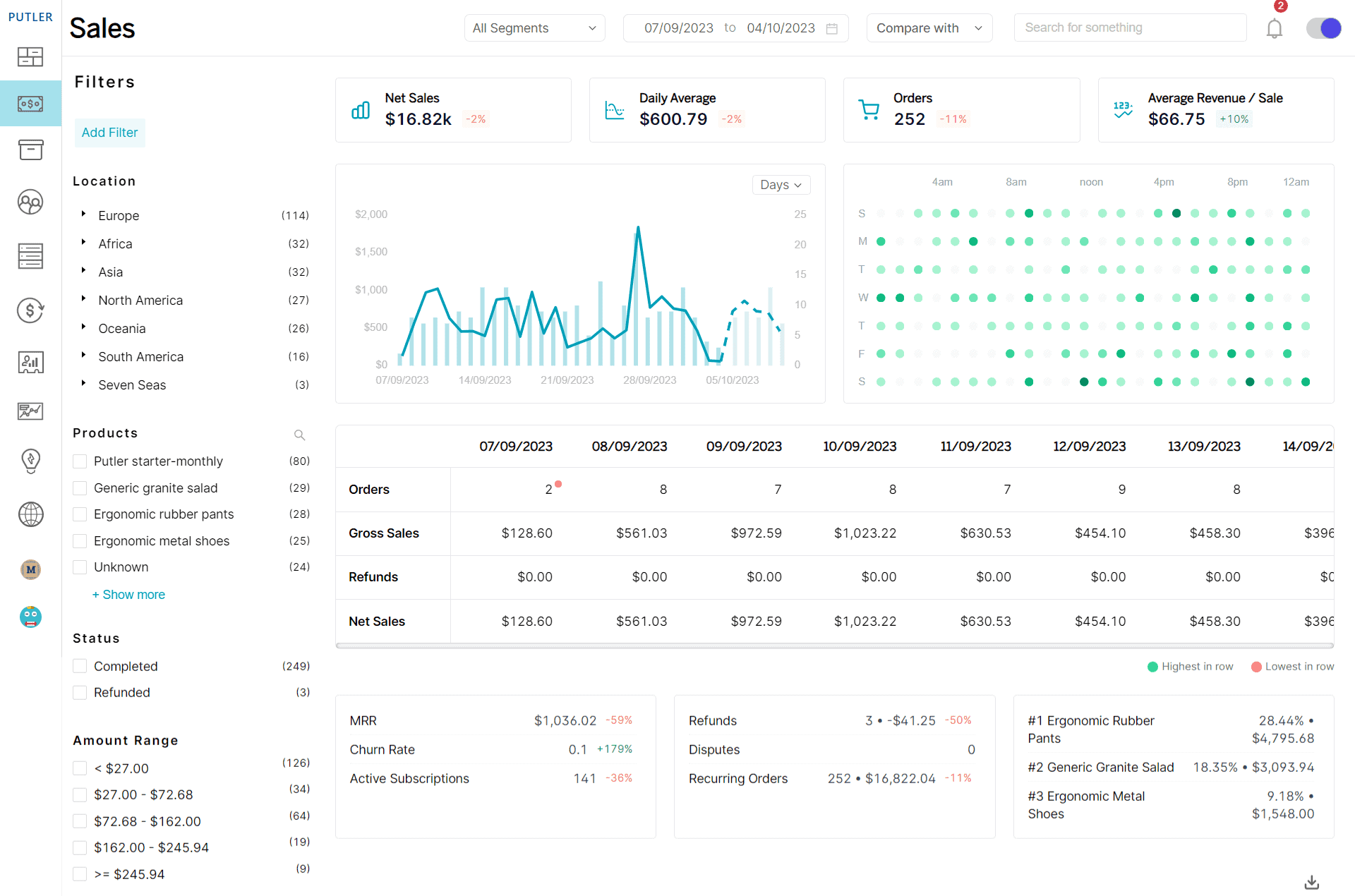
Putler provides you with real-time insights into the sales performance of your products across various channels.
It tracks all important sales metrics, including revenue, units sold, average order value, and customer demographics.
You can use this information later to identify top-selling products, changing consumer trends, and areas of high demand.
Inventory & product management
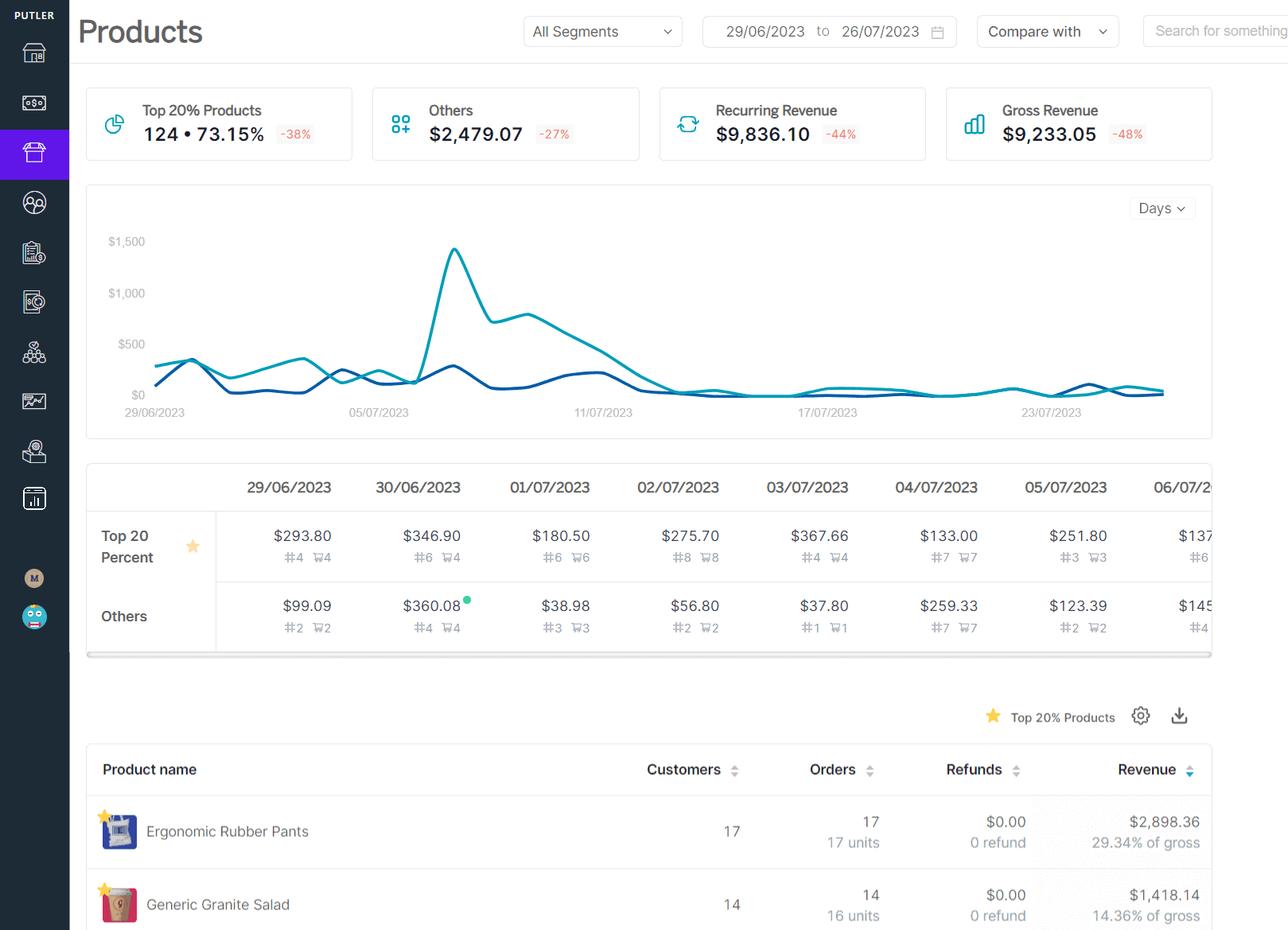
Putler can also help FMCG companies optimize inventory levels. It provides insights into product performance and demand patterns.
You can use these indications to forecast demand better and prevent stockouts or overstock situations, further streamlining the entire supply chain processes.
You can also use the Products dashboard of Putler to identify faster and slower-moving products.
This information will help you pre-stock fast-moving products. For slower-moving products, you can try offering some discount or running a campaign.
Demand forecasting for new product launches
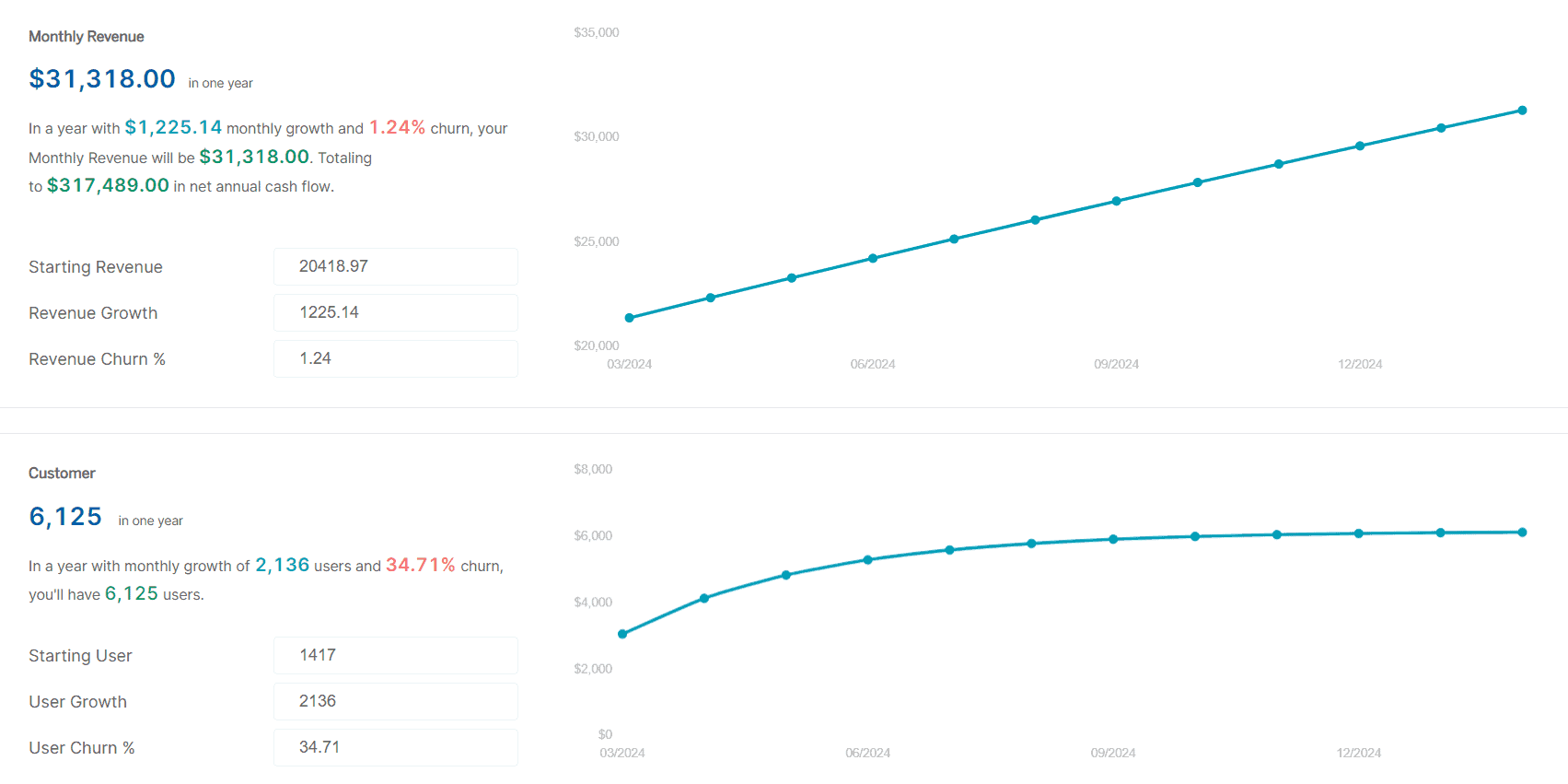
Putler also helps you analyze historical sales data of products for better sales forecasting.
You can further tally this information with current market trends to forecast demand for the next versions of those products.
Businesses can also use this data to determine the initial production volume, strategy, and efforts to ensure proper sales.
Optimize promotions and discounts
Putler can’t track marketing campaigns directly, but you can use this tool to identify which discounts generate more sales and customer engagement.
Here’s how you can do it –
This will allow the company to focus on the most effective ones and reduce unnecessary costs.
Enhance customer services
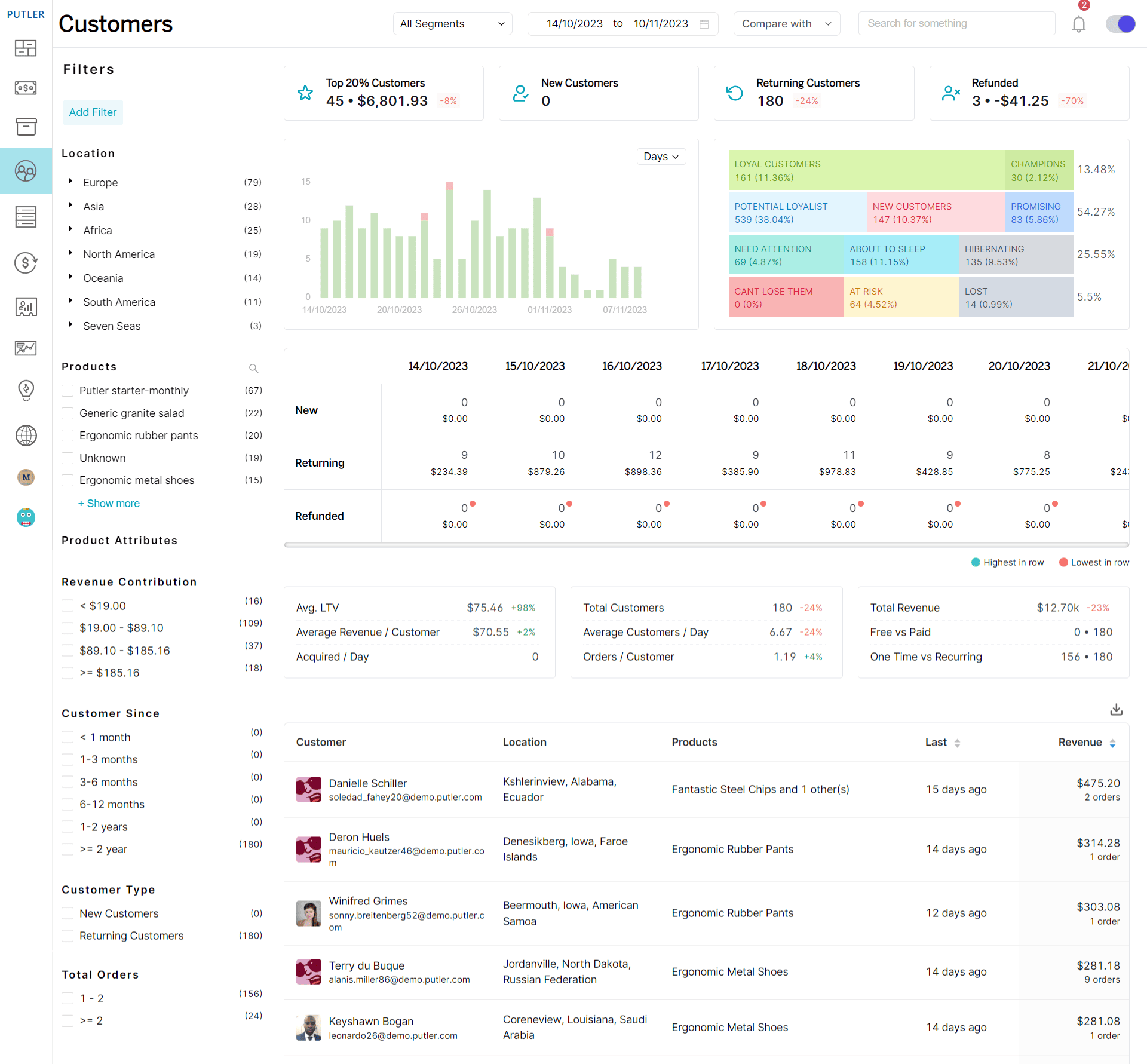
Although not a customer service software itself, Putler can still help you improve your customer service.
It provides detailed information about your customers so you can easily understand your customers’ needs and address their problems quickly.
Additionally, Putler can also help you understand and identify common issues so that you can address those problems and make informed decisions.
With this tool, you can personalize your interactions with your customers to give them the best service. You can also identify loyal customers and rewards them to increase retention.
Also, you can identify customers on the verge of losing and make necessary decisions to ensure they stay back.
Overall, Putler helps businesses offer faster and personalized customer service leading to enhanced customer experience.
Segmenting customers for targeted marketing
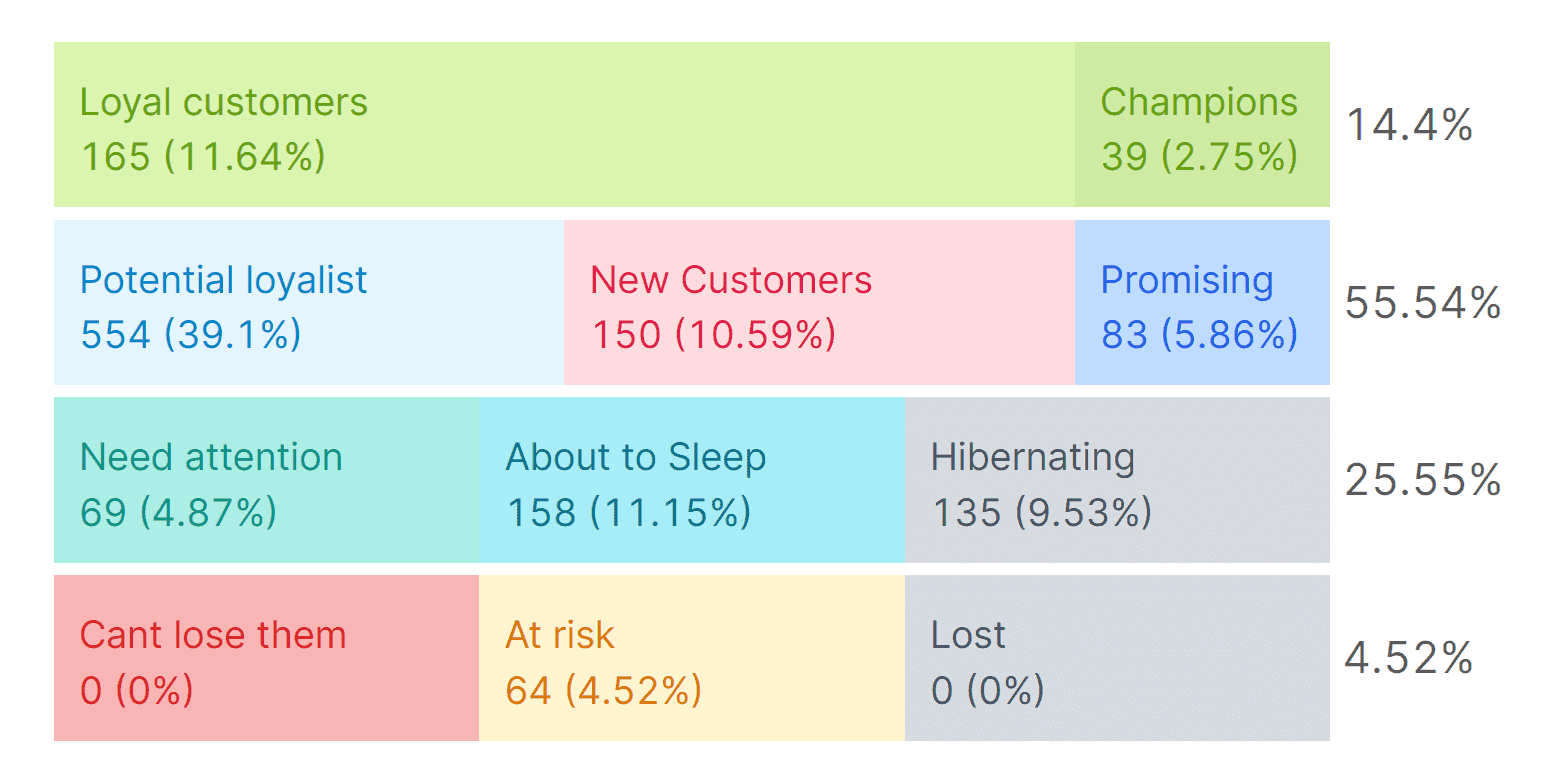
Putler has a dedicated Customers dashboard where businesses can find every detail about their customers.
For instance, they can use RFM analysis to segment customers based on their purchasing behavior.
Besides, there are multiple filters and facets that can help you divide your customers into various segments based on their location, revenue contribution, behavior, attributes, number of orders, etc.
Overall, FMCG companies can gain a competitive edge in the market with Putler’s advanced analytics.
Things that are not covered in Putler
At Putler, we believe in continuous improvement.
While we strive to offer the best analytics solution for FMCG companies, we recognize there are areas where we currently fall short.
We’re actively working to address these limitations:
Scalability
As FMCG companies expand, their data needs become more complex. Putler can handle complexity to a certain extent but is not yet ready to support large-scale enterprises as they come with their fair share of unique requirements.
That said, we’re working on improving Putler’s scalability to ensure it grows seamlessly with your business. Our current infrastructure serves most businesses well.
However, some aspects of the platform may require additional optimization for large-scale enterprise use. For instance, processing times for complex and large datasets can sometimes be longer than ideal.
Advanced subscription analytics
Another area we’re improving is subscription analytics.
Subscriptions are becoming important in FMCG. While current subscription analytics tools are great, there’s room for more advanced features.
Putler is working on making these tools even better for you.
Our goal is to stay ahead as subscription services become more important in FMCG.
Conclusion
By now, it’s clear how data analytics can aid the growth of FMCG companies. To summarize, here are the key benefits:
- Product management
- Understand customers
- Improve customer experience
- Forecast sales
- Personalize marketing campaigns
- Optimize pricing strategy
And so on.
Keep in mind that if you’re selling products online, Putler is a valuable tool to consider.
Putler helps you collect data from different channels and see it in an integrated dashboard, allowing you to identify patterns, view insights, and make informed decisions.
FAQs
What types of data are analyzed by FMCG companies?
FMCG companies analyze various types of data including:
- Sales data
- Customer data
- Marketing data
- Supply chain data
- Product data
- Financial data
By analyzing this data FMCG companies can make better decisions, optimize their operations, enhance customer satisfaction, and stay competitive in the market.
What are the applications of analytics in FMCG?
Data analytics can help FMCG companies in multiple ways. This includes improving customer satisfaction, optimizing supply chain management, inventory management, improving marketing strategies, and so on.
How do FMCG companies collect data?
FMCG companies can collect data through various methods:
- Point of sale system
- Customer loyalty programs
- Survey and feedbacks
- Digital marketing analytics
- Supply chain and inventory management system
- Market research
And many more.
How to implement data analytics effectively?
FMCG companies can implement data analytics by collecting and integrating data, and using advanced techniques to derive meaningful insights and make better decisions.
Again, to avoid this manual work, one can also use advanced analytics tools like Putler. Such tools pull data from multiple channels and present it on integrated dashboards.
What are some challenges FMCG companies can face in implementing data analytics?
There are several challenges FMCG companies can face while implementing data analytics. Some of them include:
- Data quality and integration
- Data security and privacy
- Cultural resistance
- Technology and infrastructure
- Cost and ROI justification
- Actionable insights
- Consumer behavior complexity
By using analytics platforms like Putler, you can tackle these challenges and make data analytics more accessible.
